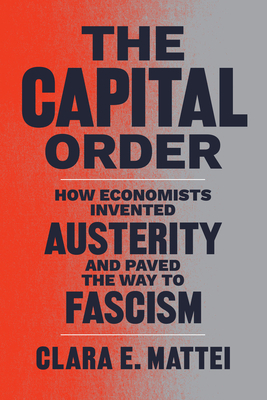
British public services are flagging – even without the wave of strikes provoked by the government’s attempt to force below-inflation payrises. Many are assailed by staff shortages – health services in particular. Backlogs mount in health, the courts and the processing of immigrants. The police seem to be dealing with a diminishing proportion of crimes. The government seems to have little idea how to address this.
What is the cause? There are three obvious ones. The first is the austerity policies in place since the great financial crash of 2008/09, ratcheted up by the coalition government of 2010-2015, and intensified by the Conservatives alone from 2015 to 2017. The second is more demand for services from an increasing population of elderly. On top of these came the disruption of the covid-19 pandemic, which caused many backlogs. These have all doubtless contributed, but the problems go deeper, and will require a new mindset to fix. Take the issue in hospitals of patients who cannot be released back into the community, causing a shortage of beds. This problem goes back a very long way. I remember people talking about “bed-blocking” thirty or more years ago. Or the bullying, racism and misogyny that are rife in the police and fire service, and doubtless elsewhere. Most of us thought that these problems were being stamped out after the 1960s – it is shocking to see that they are unchecked in this day and age. This bespeaks generations of weak management, fending off the modern world with defensive strategies, like extra bureaucracy, rather than true problem-solving. Every time that one or other service says that lessons will be learned after some failure (and it happens more than weekly), you can guarantee they mean that some extra rule has been layered onto the existing thicket of unmanageable procedures.
A lack of leadership, from senior politicians down, is clearly part of the problem – though more in some services than in others – in fact there are many pockets of excellence. But this problem results from institutions being trapped by a system that constrains initiative and crushes rather than rewards enterprise. This arises from how the work is organised – which leads to two related problems. First of all the system is heavily biased to fixing problems rather than preventing them. The best way of stopping health service backlogs is for people to be healthier, after all. Secondly almost all the difficult problems, and especially those that focus on prevention, require multiple agencies to cooperate without adequate structures to ensure that cooperation is effective. Somebody on the radio recently listed all the agencies that had to come together in a criminal trial (courts, police, prosecutors, defenders, the prison service, the probation service, and so on); it’s no wonder that they don’t work efficiently. No wonder, but also nobody’s responsibility.
Problems with public services are nothing new. People have been wrestling with it for as long as I can remember. The Thatcher government of 1979-1990 had the big idea of privatising large swathes of services, which then included many public utilities. In many cases this was very successful – in telecoms and energy, especially. But it soon became clear that there were limits. Privatising prisons, for example, may have solved some problems, but created many others. The next major push came from the Blair/Brown government that took power in 1997. They had two main ideas: establishing quasi-independent agencies in a sort quasi-market economy (academy schools and NHS Foundation Trusts, for example), an idea more closely associated with Tony Blair; and close performance management, with the use an array of performance targets, and managers being disciplined if they were not met, an approach more closely associated with Gordon Brown. For convenience I will call these the Blair and Brown approaches, though both men supported both approaches to some extent. We can learn much from what became of them.
The Blair approach had easily the best press – praised by many right-leaning think tanks and journals like The Economist. They were picked up, and in places turbo-charged, by the coalition government that followed Labour. They had one important success: university education in England. This was linked to a dramatic increase in student fees, linked to a student loan system that works like a graduate tax. This gave the universities a degree of operational independence. Problems continue, but Britain’s university system remains world-class; rationing of university places, as required by Scotland’s directly-funded system, has not been required, with the result that a higher proportion of the population can attend. Elsewhere the reforms are being quietly buried. Much success has been claimed for academy schools, and there have been success stories – but the main thing that can be said for them is that they have not made things much worse. They have been linked to the waste of public money, however, with senior management overpaying themselves. In the NHS the system is being quietly dropped, as it entails much bureaucracy, while doing little to address fundamental performance issues, like integration of care or patient safety. In both health and education, the services were linked to massively complicated and prescriptive funding models, which failed to work like commercial tariffs in the way the designers hoped. This is one way in which it differed from the university reform.
The Brown model, on the other hand, received a much worse press. People complained of complex targets, misaligned incentives, and macho sackings of senior managers – creating a climate of fear that undermined creative problem-solving. All of these criticisms were well-founded, but the system had some notable successes. The Labour government oversaw a dramatic improvement in the quality of teaching in schools, and especially in London. The new academies were part of this success, but local authority schools did just as well, if not better. As a primary school governor, and chair of governors, I saw this improvement happen at close quarters. There was some rather crude top-down management from the ministry, but the professionalism of school and local authority leaders by and large rose above this – and pushed through dramatic improvements. I have seen a quality of management that easily matches what happens in the private sector. Four things stand behind this success. Firstly, schools already had a huge amount management autonomy compared to other public agencies, as their services are relatively self-contained; second standards were enforced by an independent standards agency, Ofsted, which carried out regular inspections of schools and local authorities, and used well-designed metrics to act as benchmarks; third, local authorities proved effective intermediaries between central government and the schools; finally funding was increased, which gave managers more ability to achieve change. Interestingly the coalition government, while pushing the largely irrelevant academies initiative, picked up were Labour left off, by sharpening the focus on quality of teaching, and dramatically improving the funding system with the (Liberal Democrat) pupil premium system, and its attendant focus on disadvantaged pupils. Since the coalition, the focus has been somewhat lost, and funding squeezed; Ofsted went off the boil (doubtless thanks to funding cuts) by easing pressure on top-rated schools.
The Brown model was applied to the NHS too, and the quality of NHS services drastically improved over the Labour years. But this is mainly attributed to an equally dramatic increase in funding. The easiest thing to say about this is that the combination of extra funding and close scrutiny of results achieved much more than either of these would have alone. The Brown government, towards the end of the Labour period, did try to address some of the problems with the performance management system. I remember a new system called “team around a child” which aimed to bring multiple agencies together to address issues around individual cases. But it wasn’t clear whose job it was to knock heads together. Most of this was swept away when the Labour government ended.
Over the last decade or so, the Conservatives have adapted rather than overturned the previous Labour government’s approach, with the important difference that they have squeezed funding relative to demand. They have revived and extended an older idea too: tendering and outsourcing to outside agencies, be they non-profit enterprises or commercial providers. This has been disastrous. The aim has been to save money, and this has meant redefining the services as a skeleton of what they should be to play a fully functional role. The outsourcers then duly cut the service back, by, for example, replacing skilled professionals with less skilled recruits following standard scripts, and who are unable to to make proactive interventions or prevent difficult cases becoming “frequent flyers”.
The problem is that none of the various things that governments have tried in the last forty years have addressed the fundamental organisational problem – which is that responsibility is divided among so many agencies, which in turn are managed at national level. The system is centred around specialist service provision, and not people. Crime, housing, mental health, physical health and family dysfunction are all closely linked together. We may find all these contributing in a particular serial offender, say, who causes multiple agencies to commit resources. But instead of the agencies coming together to find a solution, the system encourages them to continually pass the parcel.
So how to progress? Public services need to be more focused on their users, and services intermediated by professionals empowered to bring different elements of service together. This means more localised control of services, so that those intermediaries don’t have to escalate issues far up the chain of command in order to resolve blockages. It means a local political leadership able to focus on the needs of particular people, and accountable for the overall results in a particular locality. That, inter-alia, means substantial devolution of political power to regions and local authority areas. That is necessary but not sufficient. Scotland and Wales have just as disappointing record on public services as England, in spite of substantial devolution. We need more specific policy reform ideas.
Interestingly Labour’s recent proposals on constitutional reform (proposed by Mr Brown) show that there is a political consensus around further devolution. However the narrative is based more transport infrastructure and economic growth, rather than making public services more effective. I’m not sure if many politicians grasp what is needed to improve public services. Still, in the dying days of the coalition a deal was done make a more substantial devolution of public services to the Greater Manchester Mayor, including some NHS and social care services. As I recollect this was criticised by Labour at the time. According to this study, it has been a modest success, with a slight improvement to life expectancy.
Still the forces of conservatism are powerful. It is always tempting to try and make the current, departmentally bound and centralised system work, rather than undertaking risky reforms – especially ones designed to give credit to regional and local politicians. But politicians need to improve the effectiveness of public services urgently – and through the extra effectiveness reduce demand by solving problems. This needs a huge change in political culture, but once one area starts leading the way, that should generate momentum. With Scotland distracted by the debate on independence, the most promising place to start looks like Greater Manchester. we will probably have to wait for the next government, though.
